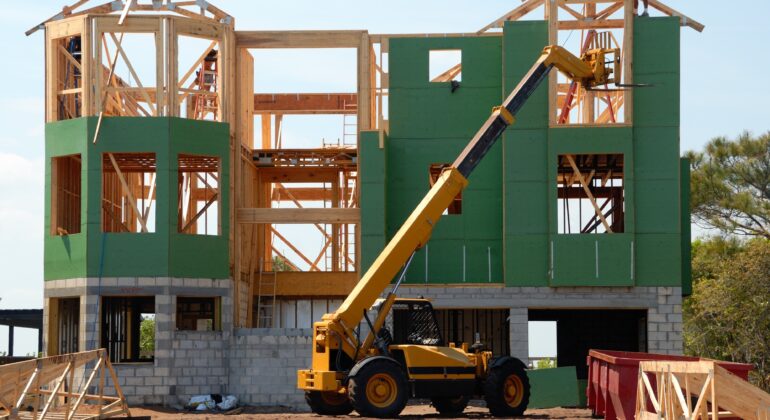Misunderstandings regarding a Party Wall Agreement are widespread among property owners in the UK, often resulting in confusion and potential disputes. These misconceptions arise from the complexities inherent in navigating the regulations and requirements surrounding party walls. The intricate legal framework and refined procedures involved in these agreements can indeed be daunting for property owners to comprehend and manage effectively.
Part of the challenge lies in the varied interpretations of party wall legislation, leading to differing understandings among property owners. Additionally, the technical language and legal jargon within the regulations often contribute to the confusion, making it challenging for individuals to grasp the precise obligations and rights outlined in these agreements. Consequently, this lack of clarity can lead to misconceived expectations, disagreements, or even disputes between neighbours or property owners sharing a party wall.
Given these complexities, seeking professional guidance or engaging a surveyor well-versed in party wall matters can be instrumental in ensuring clarity and adherence to legal requirements, thereby preventing potential conflicts and facilitating smoother agreement processes. In this post, we aim to demystify some of these common misunderstandings, offering clarity on legal and procedural aspects of Party Wall Agreements within the context of British law. Read on to learn more….
Party Wall Agreements are Optional
A prevalent misconception is that a Party Wall Agreement are optional or necessary only for substantial construction work. In fact, the Party Wall Act 1996 mandates that property owners must serve a Party Wall Notice to their neighbours that require party wall notice for various types of work involving a shared wall or boundary (Party Structure).
This includes not only significant renovations but also minor works like damp-proofing party walls. Ignoring this legal requirement can lead to legal disputes and additional costs.
Verbal Agreements Suffice
Whilst a cordial relationship with neighbours is valuable, relying solely on verbal agreements for party wall matters is risky. The law requires a formal written party wall notice and subsequent agreement. This formalisation ensures that all parties have a clear understanding of the work to be undertaken and provides a legal framework to resolve any disputes that may arise.
Immediate Start of Work Post Notice
Another common error is the assumption that work can commence immediately after serving a Party Wall Notice. However, the Party Wall Act provides neighbours with a 14-day statutory party wall notice period and a further 10-days as a reminder to respond. If they consent within this period, work can proceed. If they dissent or do not respond, it triggers a dispute resolution process, which can involve appointing a Party Wall Surveyor to prepare a Party Wall Award.
The Party Wall Surveyor Represents the Building Owner
Party Wall Surveyors are often perceived as representing the interests of the Building Owner who is undertaking the work. In truth, their role is to act impartially to ensure the Party Wall etc. Act 1996 is adhered to. They are responsible for preparing a fair and reasonable Party Wall Award, which outlines the manner of executing the work and measures to prevent or repair any damages.
Party Wall Agreements are Unnecessary for Loft Conversions or Extensions
Many property owners believe that loft conversions or rear extensions do not require a Party Wall Agreement, especially if they do not directly affect the shared wall. However, under the Act, these types of works may still fall under the scope of party walls requirements, particularly if they involve work on or near a shared boundary or structural changes.
Neighbours Can Prevent Work from Taking Place
There is a myth that if a neighbour objects to the proposed work, they can stop it from happening. The truth is, provided the work is lawful and the party walls procedures are correctly followed, an objection does not mean a veto. It leads to a dispute resolution process where a surveyor will determine how and when the work can be carried out safely and fairly.
No Need for a Party Wall Agreement for Repairs
Property owners sometimes assume that repairs do not require a Party Wall Agreement. However, the nature of the repair work may necessitate such an agreement usually referred to as an Addendum Award or a Further Award. It’s crucial to evaluate whether the proposed repair work falls under the Act’s purview and proceed accordingly.
Insurance is Optional
Lastly, a common oversight is the underestimation of the importance of insurance. When undertaking work governed by a Party Wall Agreement, it’s essential to ensure that adequate insurance is in place. This protects against any damage to the neighbour’s property that might occur during the course of the work.
Professional Party Wall Surveyor in Stratford
At The Party Wall Guru, we are experts in crafting comprehensive Party Wall Agreement, crucial for resolving disputes in property construction and renovation. Our Chartered Surveyors are proficient in navigating the complexities of Party Wall matters, ensuring a fair and legally binding resolution.
Our service includes a detailed Party Wall Agreement, covering every aspect from identifying the involved parties and properties, surveyor details, and clear work descriptions, to establishing working practices, timelines, and indemnities. We prioritise minimising inconvenience and ensuring both parties’ well-being, with clear agreements on rights, responsibilities, and access.
Our agreements also encompass additional documents like a detailed schedule of property condition pre-works, architectural and structural drawings, and other relevant documentation to ensure comprehensive coverage of all project aspects. Contact us today on 0208 058 9883, or email us at surveyors@thepartywallguru.com.





